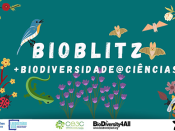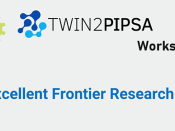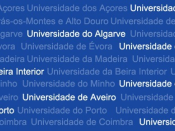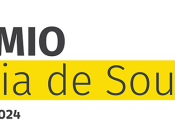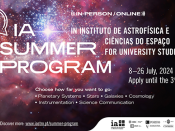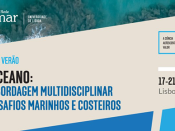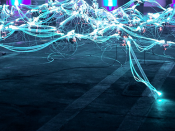Por António Branco.
Cognitive modeling is concerned with computational models of the mind or particular cognitive processes for the purposes of scientific comprehension and prediction of their performance and outcome regarding relevant input. It is the apex of Cognitive Science as it confronts and articulates the coherence of its disparate macro- and micro-level findings and bridges to its technological applications [1][2].
This talk aims at being an invitation to this most fascinating and challenging research area, which has gone through vigorous progress recently, as it is moving from being based merely on external representations of cognitive content or activity (e.g. text, pictures, etc.) to successfully take their neural-based representations into account (e.g. EEG, fMRI, etc.).
We highlight its major approaches, with their more prominent promises and challenges, from the ones based in logics to those based on deep neural networks.
Past and current research carried out in our Cognitive Science and Informatics Engineering postgraduation programs are briefly overviewed, which covers the modeling of grammatical knowledge [3][4], mood [5], semantics [6], emotions [7], reading [8], imagined speech [9] or olfaction [10], among others.
Cognitive modeling being a scientific endeavour on its own and confluent with AI, and given the awesome advances in so-called Generative AI, we focus on the ongoing debate about the prospects of AGI (Artificial General Inteligence) being reached soon [11][12][13], and the eventual relevance from and for cognitive modeling.
Short bio: António Branco is the Coordinator of the MA and PhD programs on Cognitive Science of the University of Lisbon (inter-faculties: Sciences, Letters, Medicine and Psychology).
He is a scientist from FCUL whose research is devoted to Artificial Intelligence and its subarea of Natural Language Processing, with a special focus on the technological preparation of the Portuguese language for the digital age, aiming thus at contributing to enhance the citizenship of its speakers in the information society.
References:
- [1] Newell, Allen, 1973, You can't play 20 questions with nature and win, W. G. Chase (ed.) Visual Information
- Processing, New York: Academic Press. https://www.coli.uni-saarland.de/~crocker/documents/Newell-1973.pdf
- [2] Open Science Collaboration, 2015, Estimating the reproducibility of psychological science, Science vol 349, n. 6251. https://www.science.org/doi/10.1126/science.aac4716
- [3] Costa, Francisco, 2012, Processing Temporal Information in Unstructured Documents, PhD Thesis, Informatics Engineering, Faculty of Sciences of the University of Lisbon, Supervisor: António Branco http://hdl.handle.net/10451/8639
- [4] Silva, João, 2014. Robust Handling of Out-of-Vocabulary Words in Deep Language Processing. PhD Thesis, Informatics Engineering, Faculty of Sciences of the University of Lisbon, Supervisor: António Branco. http://hdl.handle.net/10451/11956
- [5] Ribeiro, João Gulherme, 2016, Sistemas dinâmicos não lineares em doença mental, PhD Thesis, Cognitive Science, University of Lisbon, Supervisors: Carlos Lourenço (FCUL) and Ana Sebastião (FMUL). http://hdl.handle.net/10451/25145
- [6] Maraev, Vladislav, 2017, Modelling Semantic Relations with Distributional Semantics and Deep Learning, MA Thesis, Cognitive Science, University of Lisbon, Supervisors: António Branco (FCUL) and Carlos Lourenço (FCUL). http://hdl.handle.net/10451/30183
- [7] Vieira, Iolanda, 2022, Recognizing Emotions in Short Texts, MA Thesis, Cognitive Science, University of Lisbon, Supervisors: João Silva (FCUL) and Patrícia Ferreira (ISCTE). http://hdl.handle.net/10451/53771
- [8] Fottner, Nicola, 2023, Modelling early to mid-level visual processes of illiterate populations with Deep Belief Networks, MA Thesis, Cognitive Science, University of Lisbon, Supervisors: Tânia Fernandes (FPUL) and Luís Correia (FCUL).
- [9] Cordeiro, Alice, 2023, EEG-based Cognitive Modeling of Speech with Deep Neuronal Networks, MA Research Plan, Cognitive Science, University of Lisbon, registration ongoing.
- [10] Silva, Diogo, 2023, Hedonic Library Of Smell by Physiological Data Analysis, MA Research Plan, Cognitive Science, University of Lisbon, registration ongoing.
- [11] Morris et al., 2023, Levels of AGI: Operationalizing Progress on the Path to AGI, Google DeepMind, Nov 4, 2023. https://arxiv.org/pdf/2311.02462.pdf
- [12] Goldman, Sharon, 2023, OpenAI’s six-member board will decide ‘when we’ve attained AGI’, Venture Beat, Nov 12, 2023, https://venturebeat.com/ai/openais-six-member-board-will-decide-when-weve-attained-agi/
- [13] Butlin et al., 2023, Consciousness in Artificial Intelligence: Insights from the Science of Consciousness, https://arxiv.org/pdf/2308.08708.pdf





